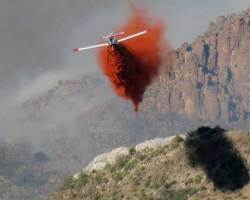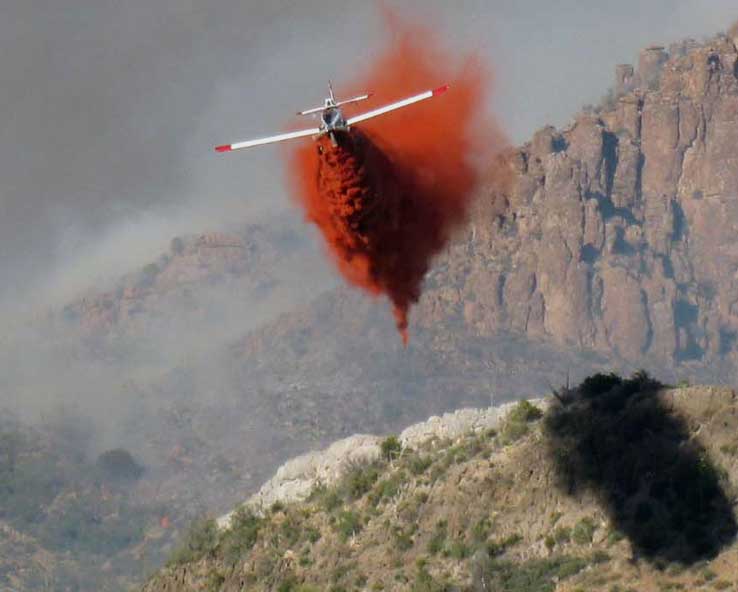
A plane drops retardant in Arizona. (Photo courtesy of the U.S. Forest Service.)
Colorado’s High Park forest fire has burned nearly 60,000 acres. According to the Forest Service, 189 homes have been lost and 1.3 million gallons of water dropped on the blaze.
Planes are also dropping hundreds of thousands of gallons of fire retardant, a mix of chemicals intended to slow the fire’s spread. From a report by the Denver Post:
So far this fire season, air tankers called to suppress wildfires have been dropping the fire retardants (the mix is called LC95A) at a record pace. As of Friday, more than 401,450 gallons had been dropped on Colorado forests this year, including 320,553 gallons on the lightning-sparked High Park wildfire west of Fort Collins, according to Forest Service records.
LC95A is good for slowing fires. But the slurry is also toxic.
“There are other chemicals associated with it, but ammonia and the nitrates are the ones we’re currently aware of that are the largest concern,” said Doug Laye, the U.S. Fish and Wildlife Service regional coordinator for endangered species, who is overseeing the new policy for fire retardants. “These can change the water chemistry drastically. That can have a very quick and often lethal effect.” …
As it burns along the Cache la Poudre River — designated a Wild and Scenic River by the Forest Service — the High Park fire could overlap habitat for several species of sensitive fish.
In 2002, a tanker accidentally dumped 2,000 gallons of flame retardant into Oregon’s Fall River, “killing nearly all the fish along a four-mile stretch,” some 20,000 fish in total. In 2009, retardant was blamed for killing protected steelhead trout.
Two years ago, a federal judge ordered the Forest Service to assess the impacts on wildlife and establish rules for retardant use. Firefighters are trained to avoid bodies of water, but if people are threatened, those precautions can be ignored.
On the plus side, there are no reports that the dead fish caught fire.


